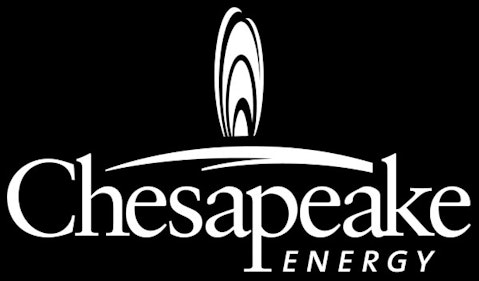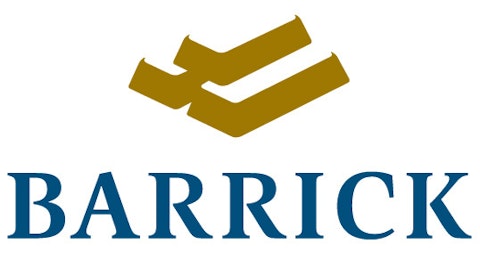Note to Warren Buffett, if you miss while elephant hunting you might just find yourself heading to an early retirement. At least that’s the experience of BHP Billiton Limited (ADR) (NYSE:BHP) CEO Marius Kloppers. After two high-profile misses and other missteps along the way, Kloppers is stepping down and handing over the reins of the global mining giant to the head of its non-ferrous metals division, Andrew Mackenzie.

I’m a fan of Marius Kloppers. I think his attempts to grow the company by large acquisition are ambitious, though in hindsight it appears that being turned down by both Rio Tinto plc (ADR) (NYSE:RIO) and Potash Corp./Saskatchewan (USA) (NYSE:POT) were blessings in disguise. That being said, his visionary leadership is one that I can stand behind as an investor.
In that piece I was more interested in where Marius would be hunting next and how he would differentiate the company from its peers and not squander shareholder capital. Apparently, those earlier failed acquisitions, coupled with large writedowns in its U.S. shale gas business were reason enough to return from his safari.
Marius isn’t the only head of a global mining company to be heading off into the sunset. The CEO of one of his targets, Tom Albanese of Rio Tinto, just recently announced that he was stepping down. In Albanese’s case, he actually bagged his elephants, but in so doing he bit off more than Rio could chew. In the end, the company needed to write down more than $14 billion after acquisitions in aluminum and coal failed to pan out.
The obliteration of investor capital in the name of growth at all costs appears to have come to an end for the time being. After recording its own multibillion dollar writedown, Barrick Gold Corporation (USA) (NYSE:ABX) CEO Jamie Sokalsky had words for his industry that sum up its present state well: “Rising costs, poor capital allocation and the pursuit of production growth at any cost in the industry have led to declining equity valuations across the sector. The message is clear: the industry must chart a new path forward.” Apparently that new path starts with a new man at the top at two of the world’s leading mining giants.
Unsurprisingly, the mining industry isn’t alone in its ability to destroy capital in the pursuit of growth. Chesapeake Energy Corporation (NYSE:CHK) CEO Aubrey McClendon is well known for his empire building. While his empire was built by acquiring acres and not companies, the results were much the same. It’s one reason why he too will be taking an early pension and turn over the reins of the company he founded to someone else.
In each case, it wasn’t necessarily the empire building that did these men in, but their timing in that pursuit. Take Kloppers’ pursuit of PotashCorp, which at nearly $40 billion would have made even Warren Buffett envious. The strategic rationale was smart because developing a new potash mine costs billions and could take up to a decade to complete. With an entry barrier that high, sometimes it’s better to buy than build. As the low-cost producer, picking off PotashCorp would vault BHP to the top in less time and with much less hassle. However, what he didn’t bank on was that Canada was fed up with losing jobs and strategic assets to foreign buyers. Of course, PotashCorp didn’t like the deal either, but that’s nothing a few more billion couldn’t cure.
That brings me to my next point, which is another page out of the “Book of Buffett.” Tell me if you’ve heard this one before: “Price is what you pay, value is what you get.” When in the context of commodity investments, the price you pay and the value you get depend solely on the future value of the underlying commodity. When McClendon was busy buying up acreage, he was snapping up that land for a fraction of what that future value turned out to be. That value though, is derived by the volatile price of natural gas. As the value of the underlying assets plunged so did his ability to fund growth by both debt and cash flow. The ensuing liquidity problem proved painful for investors. However, if gas prices had maintained their robustness we’d be praising McClendon’s visionary leadership instead of wishing him well as he departs.
Therein lies the biggest danger of elephant hunting: misjudging the outlook for the industry. That’s easy to do as commodities are known for their volatility and sensitivity to economic conditions. In hindsight, you can certainly say Rio’s deal for Alcan or BHP’s purchase of Petrohawk were both a stretch, but if the underlying commodities didn’t fall then these deals could have been considered a steal. As it turns out, the price paid was too much, and value was eroded instead of created. So while reading about the adventures of those on an elephant hunt are exciting, sometimes actually bagging one just isn’t worth all that effort.
The article Beware of the Dangers of Elephant Hunting originally appeared on Fool.com and is written by Matt DiLallo.
Fool contributor Matt DiLallo owns shares of BHP Billiton Limited (ADR). The Motley Fool has the following options: Long Jan 2014 $20 Calls on Chesapeake Energy, Long Jan 2014 $30 Calls on Chesapeake Energy, and Short Jan 2014 $15 Puts on Chesapeake Energy.
Copyright © 1995 – 2013 The Motley Fool, LLC. All rights reserved. The Motley Fool has a disclosure policy.





